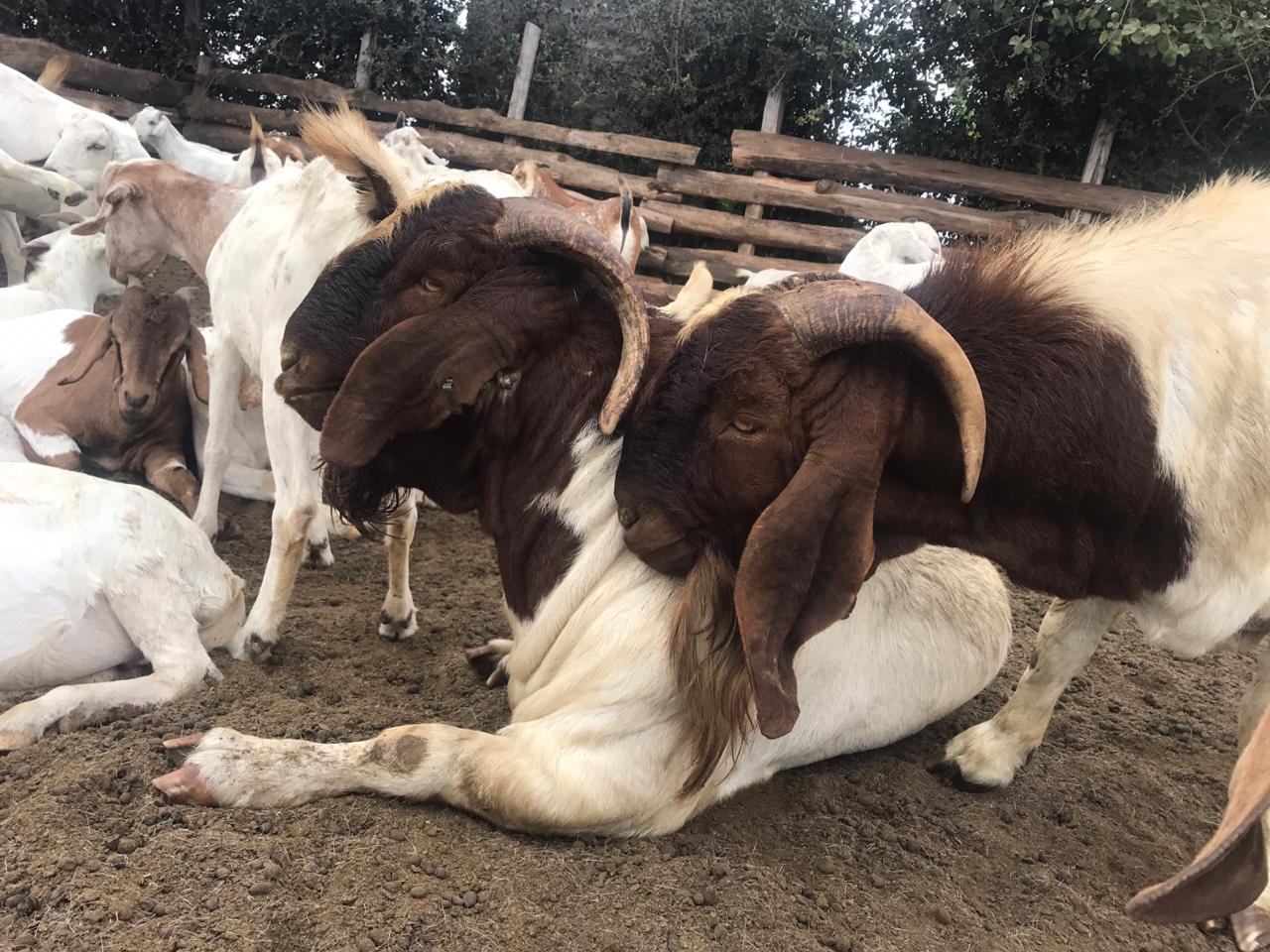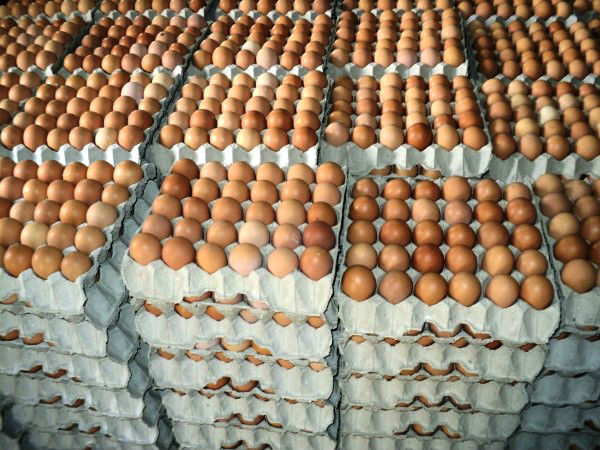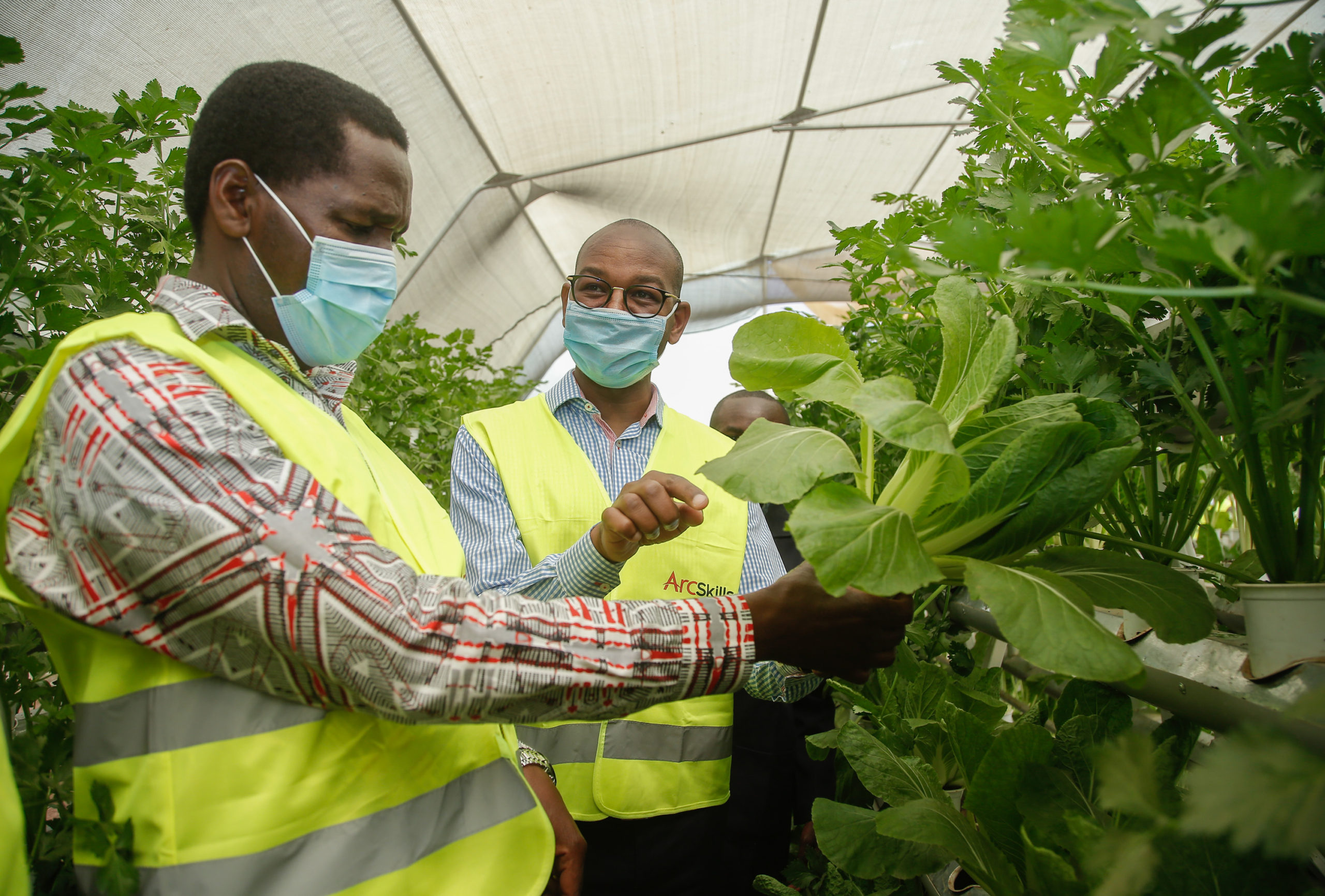
By George Munene
Bedan Bakuni Ole Ngatet keeps some 180 boer goats at his farm in Kiserian. Despite most being about 75% pure boers (he has crossed them with galla goats) he says the appetite for the breed in Kenya is insatiable--he has standing orders even for unborn kids.
Bedan started rearing boers 2 years ago when he imported a single buck from South Africa. He imported another 2 pedigree bucks in 2019. Despite it costing him a pretty penny, Sh150,000 to Sh200,000 for a single goat, he is more than happy with his investment. The breed is a fast maturer, one 1½-year-old buck he bought weighed a whopping 103 kilograms. The carcass weights of some of his 1½-year-old crosses weigh 40kg. Amongst indigenous breeds, you will struggle to find even a fully mature 6-year-old goat that weighs that much.
Related News:Fact sheet on Boer goat breed
Related News:How to import breeding goats into Kenya
The major difference he has observed to indigenous breeds is that the boer is a more voracious feeder. He prefers to cross his boers with the galla goat due to the benefits of hybrid vigour—you get the best elements of both goats; Indigenous breeds are hardy and familiar to their locality whilst boers gain much more weight much faster. Their feeding regimen is similar to that of local goats kept for meat, constituting mostly free grazed pasture and salts. For fast as possible growth, he advises farmers to offer supplements such as pellets and maize germ. He also has his goats paddocked to prevent them from wandering too far, this ensures that feed isn’t wasted, but converted into muscle and meat. The major housing requirements is that the shed be raised and well shaded.
The boer goat has a white body with red/brown head, it might also have some brown spots below its knee; long droopy ears, a stretched cylindrical head with a roman nose. Boer goats are graded in three classes:
1st class: The stud-This is a purebred boer that has the perfect physical traits and is kept for breeding. Even having any colour pigments above the knee is a disqualification factor to being considered stud worthy.
2nd class: The flock-These have fallen just short of being considered studs. They can be used for breeding or meat purposes.
3rd class: Here males are castrated and fattened, purely meant for meat.
Related News: Farmers prefer galla breed to traditional goats for quick cash
Depending on the grade he has for his own goats, he sells breeding boers for Sh40,000 to Sh60,000
His advice to farmers looking to import boer goats is that they band together and import in at least 30 boers so as to reduce the costs. There have also been cases of unscrupulous middlemen taking advantage of the demand for the goats in the country to swindle would be Kenyan boer farmers by promising them goats that have never materialised, so move with care in setting up purchasing and in parting with payments.
Write comment (2 Comments)
















